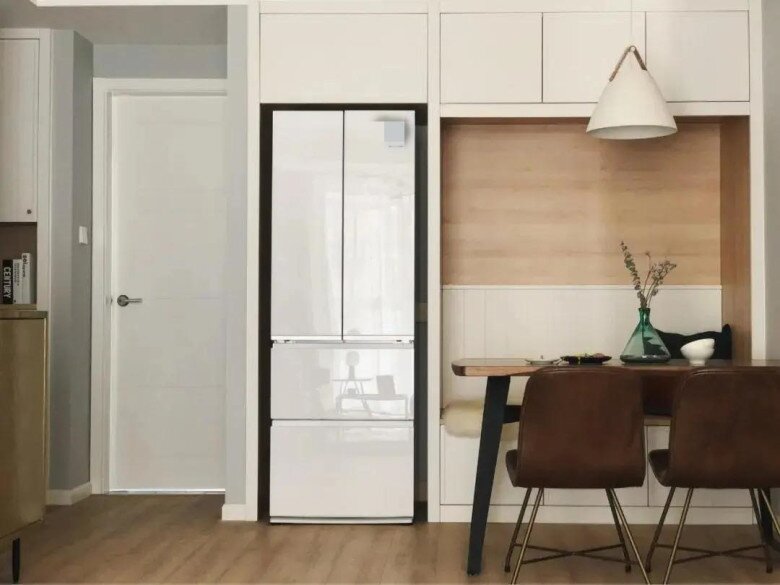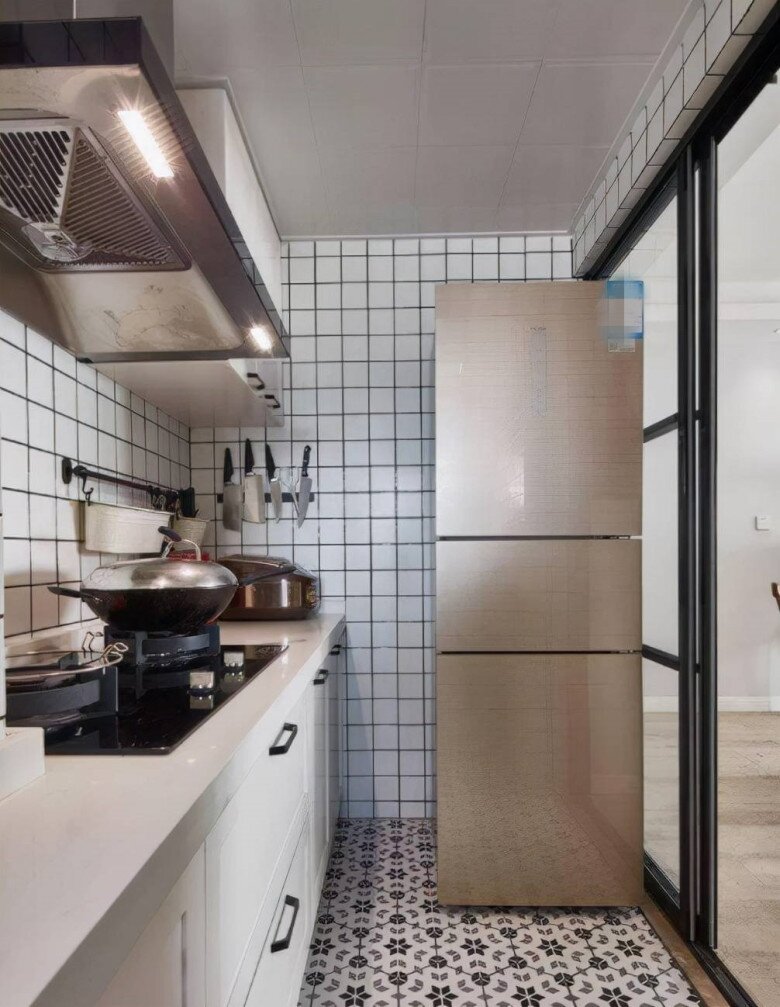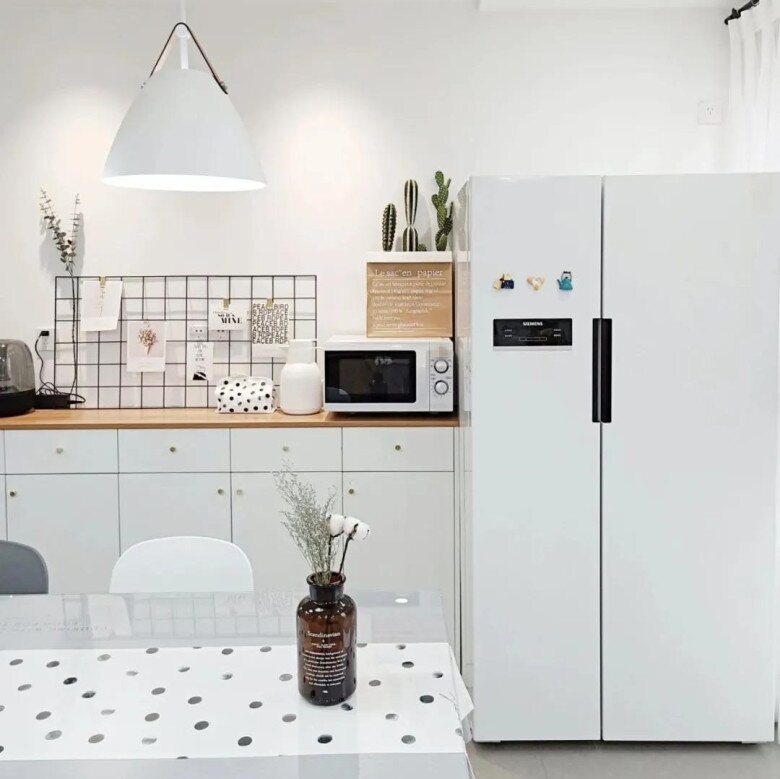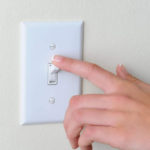Choosing the right spot for your refrigerator can be a challenge. Should you keep it in the living room or the kitchen? Let’s explore the pros and cons of each location to help you decide.

1. Advantages and Disadvantages of Placing the Fridge in the Kitchen
The fridge is primarily used to store perishable food items such as vegetables, meat, and fish. Keeping it in the kitchen offers easy access to these ingredients during meal preparation, especially those that need to be frozen.
If your kitchen has ample space for a refrigerator, it’s certainly convenient. However, if your kitchen is on the smaller side, placing the fridge there may lead to some issues:
– Space Constraints:
A large refrigerator in a small kitchen can make the space feel cramped and hinder movement.
– Impaired Ventilation:
The second drawback is the impact on the fridge’s ventilation. All electrical appliances require proper ventilation to function optimally and prolong their lifespan. The kitchen tends to have higher temperatures due to cooking, and this can affect the fridge’s cooling efficiency, compromising food preservation.

– Cleaning Challenges:
The kitchen is often the greasiest area of the home, especially if you enjoy high-temperature stir-frying. Grease and oil can easily settle on the fridge, making it a challenge to keep clean. Maintaining a grease-free exterior may require daily wiping, which can be time-consuming.
– Higher Electricity Bills:
The heat generated during cooking can impact the fridge’s internal temperature, causing it to work harder and consume more electricity. This can result in higher electricity bills, especially if the kitchen is small and poorly ventilated.
– Safety Hazards:
All electrical appliances, including refrigerators, pose safety risks due to their internal wiring. Kitchens, with their combination of water and fire, can increase these risks. A faulty refrigerator in a kitchen could lead to electrical shocks if water comes into contact with exposed wiring.

2. Advantages and Disadvantages of Placing the Fridge in the Living Room
Putting the fridge in the living room can save kitchen space and may be more practical for small apartments or open-plan kitchens. Additionally, guests can help themselves to refreshments without having to enter the kitchen.
However, the living room may not be the ideal place for a fridge due to the noise it generates. The humming or buzzing of the fridge could disturb family members trying to relax or guests engaging in conversation.

3. So, Where Should You Put Your Fridge?
The optimal location for your fridge depends on your home’s layout and your personal preferences. If your kitchen is spacious and well-designed, placing the fridge there might be more practical.
On the other hand, if your living room is spacious and easily accessible for guests, or if your kitchen is particularly small, the living room could be a better option.
Regardless of the location, consider these essential factors:
– Avoid placing the fridge too close to heat sources like gas stoves or ovens. The exterior of the fridge is typically made of thin metal and can’t withstand high temperatures. Direct sunlight should also be avoided.
– Ensure sufficient ventilation and space around the fridge to prevent overheating and maintain energy efficiency.
Of course, choosing the right fridge is just as important as its placement. When selecting a refrigerator, consider factors such as capacity, energy efficiency, brand, price, design, and features to find the perfect fit for your household needs.
7 Costly Electricity Mistakes You’re Probably Making: Are You Wasting Money on Your Energy Bills?
Many make the costly mistake of assuming that their energy bills are fixed and cannot be reduced. This is simply not the case, and there are a multitude of ways to lower your energy costs and save money. From simple behavioral changes to investing in energy-efficient appliances, there’s a world of opportunity to reduce your carbon footprint and keep those dollars in your pocket.
The 3 Vacant Spaces in Your Home That Need Attention for a Prosperous Life
The ancient proverb warns of the consequences of having “three empty spaces” within a home, leading to generational poverty. This intriguing belief sparks curiosity about the three locations alluded to and their potential impact on a family’s financial fate. It prompts further exploration, urging us to uncover the mysteries behind these empty spaces and their connection to prosperity.




































